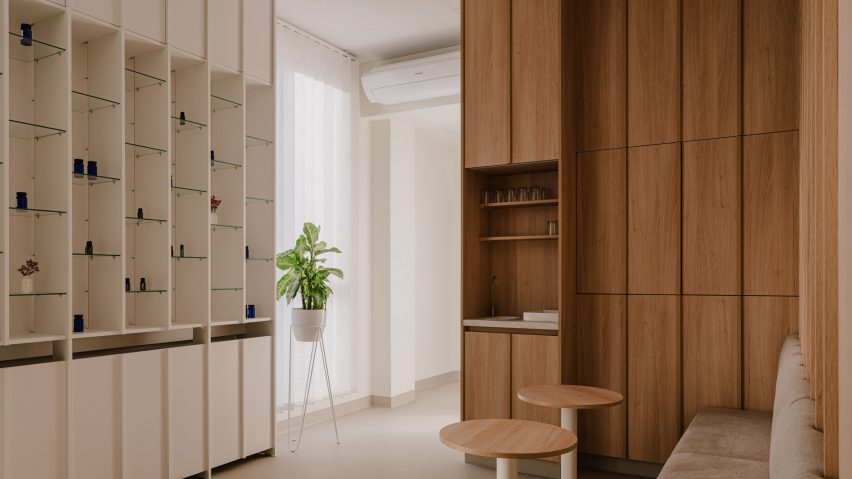
Hanczarstudio designs migraine treatment centre to be "devoid of stimuli"
From a muted colour palette to lights that are rarely switched on, the MIGRE treatment centre by Hanczarstudio in Wroclaw, Poland, was designed to help alleviate discomfort.
Local design practice Hanczarstudio designed the interior of the MIGRE migraine treatment centre in Wroclaw, Poland, to deviate from traditional medical environments.
"We wanted to create a space that was soothing and evokes associations with a beauty salon, spa or massage parlour, rather than a medical facility," said Hanczarstudio founder Szymon Hanczar.
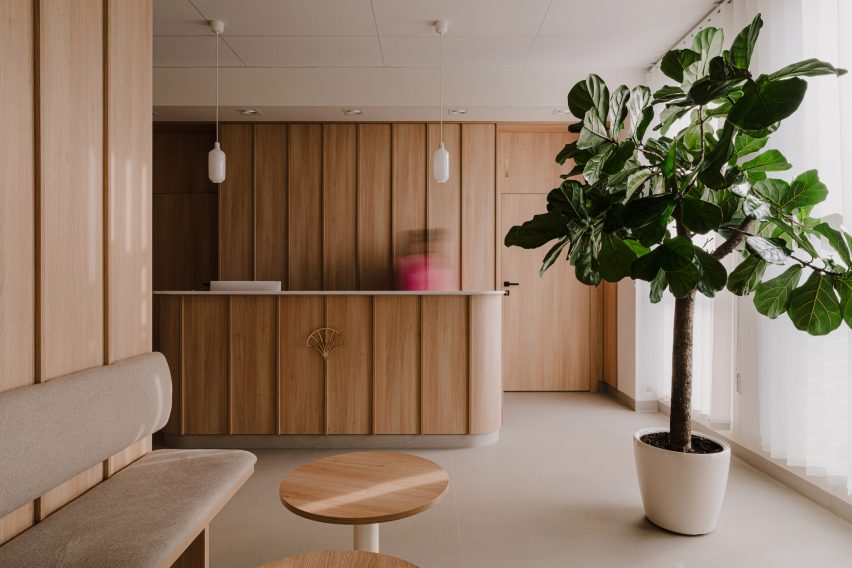
Migraines are persistent and throbbing unilateral headaches, often accompanied by nausea as well as noise and light sensitivity. The causes of migraine episodes are difficult to identify, but throughout the design the studio aimed to minimalism potential sources of discomfort.
Photophobia – meaning sensitivity to light – was addressed by diffusing soft light throughout the space. Translucent blinds help to temper bright natural sunlight coming in through the windows.
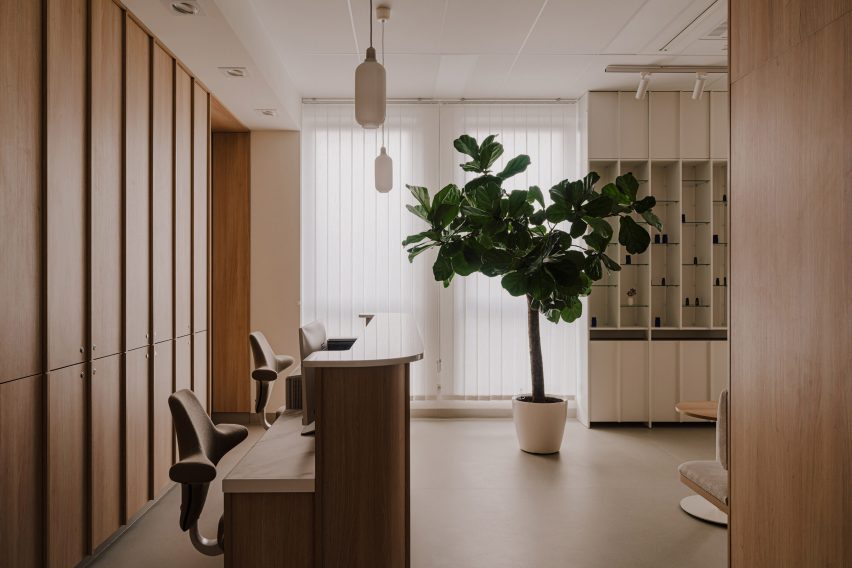
Artificial lighting had to be installed in order to meet building regulations, however these are usually left switched off in favour of indirect natural light.
"Standards are met with the inclusion of all upper light sources, but in the day-to-day operations of the centre, they are not used," explained Hanczar.
"The project even included halogens, which are absolutely inadvisable in the environment of migraine sufferers, as illumination for the display rack, but it too has its alternative source of soft lighting in the form of reflected light."
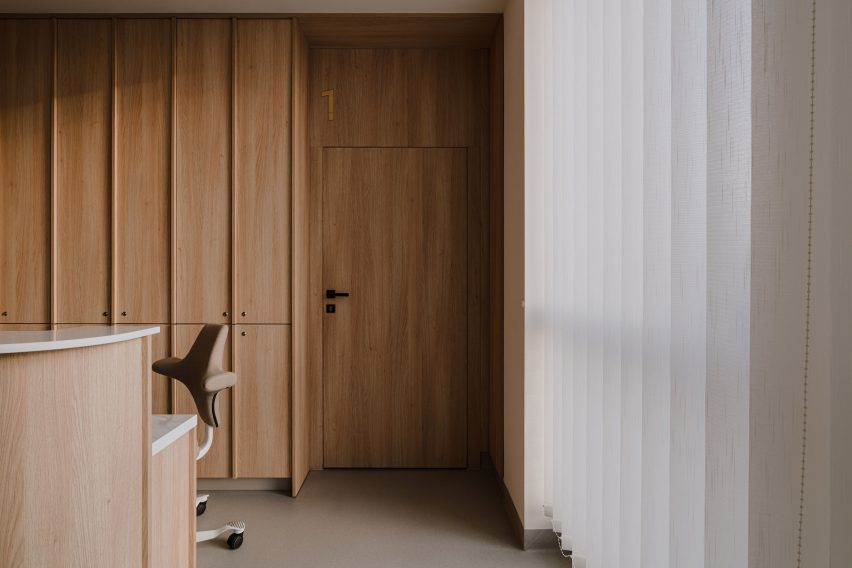
The 110-square-metre space – that includes five treatment rooms, an entry hall and a waiting room – was lined with rhythmic floor-to-ceiling oak panelling. Furniture with rounded edges, a significant amount of which is bespoke to the project, was used through out the space.
The decision to use a neutral, warm-toned colour scheme and avoid any use of bright or contrasting colours was taken in order to avoid aggravating migraine symptoms through visual overstimulation.
Migraine sufferers can also be highly sensitive to noise – the site benefits from being in a relatively quiet neighbourhood, and acoustic ceiling panels installed throughout help to mitigate any additional loud noises. Upholstered chairs, plants, wood panelling and blinds further help to dampen sound.
"[MIGRE is] a soothing, patient-friendly space, devoid of stimuli that exacerbate malaise during attacks of migraine pain," said the studio. "It was the needs of patients, not fashionable trends, that had a decisive influence on the final design of this space."
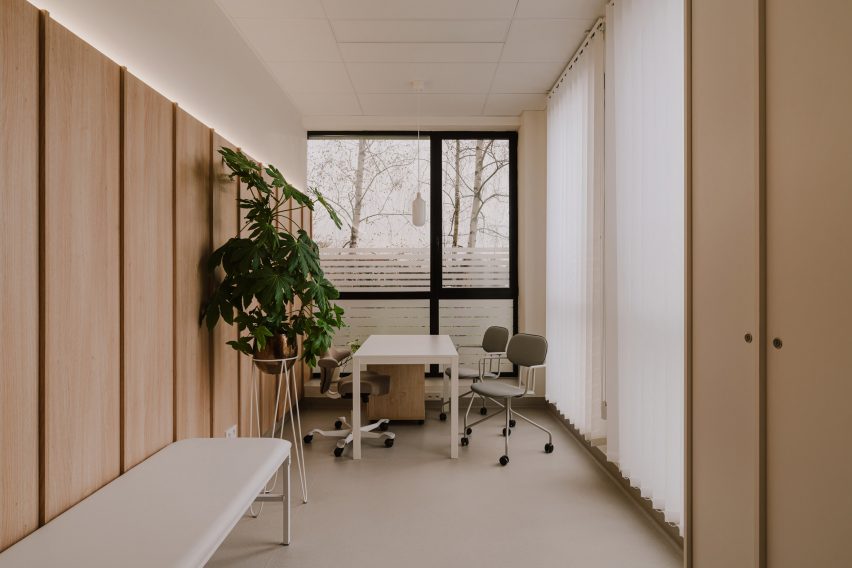
Despite being worlds apart from conventional medical spaces with stark white walls and bright overhead strip lights, the interior still needed to be up to code with hygienic standards.
Specifying PVC carpet tiles for the flooring, easy to clean hard surfaces and removable and washable upholstery ensure that the space can be kept sterile and sanitary.
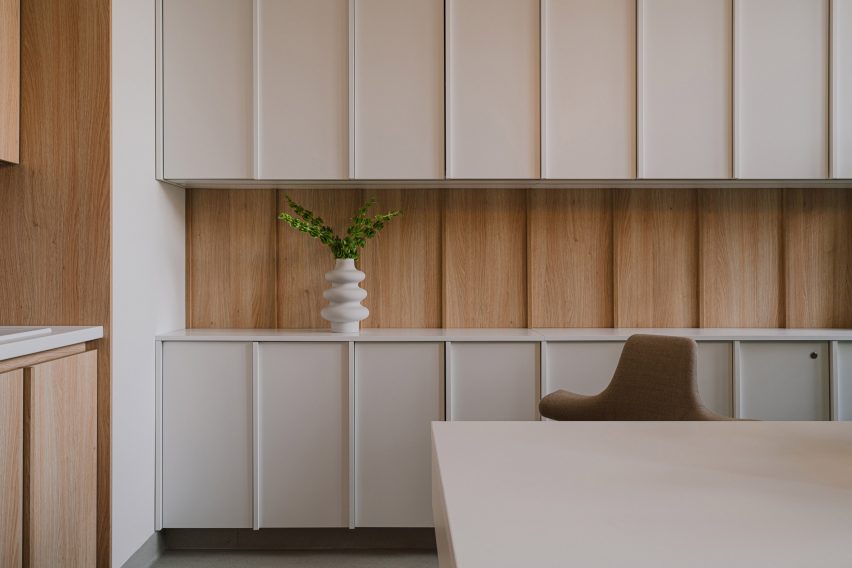
"The interior design will not take away [the patient's] illness, but I hope it will make them feel maybe better and for sure calmer," Hanczar told Dezeen.
Other medical treatment centre's featured on Dezeen include a cancer care facility in Belgiuminterior by Archekta and Ark-shelter and a wellness centre in New York City by Remedy Places.
The photography is courtesy of Zasoby Studio.